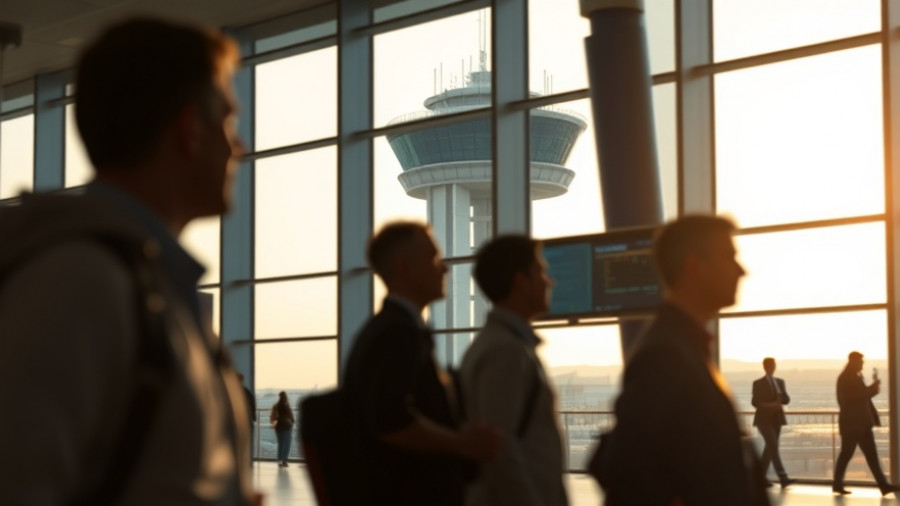
When Essential Workers Go Unpaid: Air Traffic Controllers in Crisis
In a sobering reality, air traffic controllers across the country missed their first paychecks amidst a protracted government shutdown that is upending the aviation industry. Zac Ploch, a seasoned controller with over a decade of experience, detailed his situation as he juggles expenses such as a mortgage and rising utility bills on a paycheck that showed zero. "Our job does not take an 'IOU,' and neither do our bills," he lamented, highlighting the strain his profession is facing.
The Compounding Effects of Staffing Shortages
The situation is further complicated by an alarming shortage of air traffic controllers, a crisis that predates the shutdown. Recent statistics suggest around 35% of FAA trainees are unable to complete their training, which only adds to the anxiety felt by those already in the field. In Oklahoma City, hopeful trainees are reconsidering their commitment after hearing stories from seasoned controllers about the uncertainty of compensation. "Why should I take a job that may not pay me?" they ask.
Are Our Skies Still Safe? What Travelers Need to Know
Despite assurances from Transportation Secretary Sean Duffy that air travel will remain safe, the potential for delayed flights looms large. As the labor force is stretched thin, airports may see diminishing ability to maintain timely operations. Travelers are encouraged to stay informed about their flight statuses and prepare for possible delays as controllers cope with the pressure of unpaid work.
Impacts on Future Air Travel
As the government shutdown continues, the ripple effects on air travel could extend right into the bustling holiday season. With the potential for increased cancellations and delays, now is the time for travelers to adopt a more flexible travel mindset. Preparing early and staying updated on travel plans can mitigate frustrations as the staffing issues impact operations.
The Human Cost of Delays
This shutdown is putting a tremendous strain on individuals dedicated to ensuring our safety in the skies. The sacrifices they must make raise important questions about our society's priorities. As controllers work multiple jobs just to make ends meet, the cost of air traffic control goes far beyond just dollars and cents; it presses into the heart of America's workforce.
The uncertainty faced by air traffic controllers reflects a broader trend impacting various sectors of civil service. It calls on us to rethink how we value those who keep our systems running. If there are lessons to be taken from this, understanding the human side of public service will be imperative as we navigate future challenges.
Now, more than ever, it’s essential for those of us who rely on air travel to advocate for fair treatment of these essential workers. By educating ourselves and sharing this information, we can influence change and promote a better future for our air traffic system.
 Add Row
Add Row  Add
Add 










Write A Comment